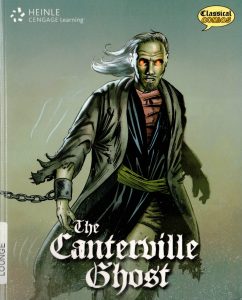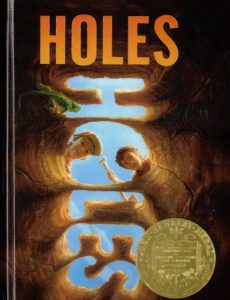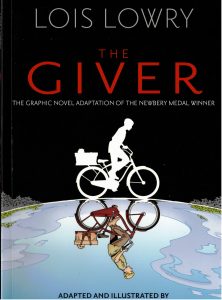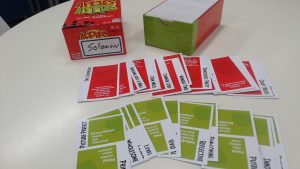[Welcome to the EL Book Introductions series. These posts are all short (<180 words) introductions/reviews of books in the EL library. They focus on telling you what we think will be interesting for you, a college student and English learner, so use them to help you find the right book for you. You can also use the tags to find books about topics you might be interested in.]
_______
What do you think of when you hear the words “ghost story”? A ghost attacking people? Murder and blood? How about humor? The Canterville Ghost is a famous and enjoyable story because it is not what you expect. The first part of the story is very funny. The middle of the story is sad. The end of the story even has some romance. It is not a stereotypical ghost story.
The Canterville Ghost tells the story of the Otis family who comes from America to live in the big old Canterville house. Sir Simon, the Canterville ghost, has been “living” in the house for hundreds of years. Everyone knows that the ghost is real, and he works very hard to keep his reputation as scary and horrible. However, the Americans are not scared of the ghost, and treat him very differently. The boys of the family are mean and play tricks on the ghost. Only the daughter, Virginia, cares enough to listen to his sad story and help him in the end.
My two cents: Like the rest of the “Classical Comics” series, this book makes a fun piece of classic literature easy to read and enjoy. Do not skip this book just because you do not like the so-so art style.











